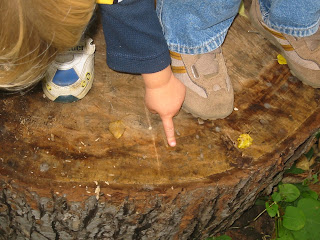
Green Housekeeping by Ellen Sandbeck has proven to be a book packed with tips, tricks, and practical advice on how to approach cleaning, mess, and clutter in the household. She tackles her subjects in neatly written chapters that deal with clutter, kitchen cleaning, bathroom, bedroom, general cleaning, air quality, hazardous materials, and gardening. The index at the front is most helpful as allows for easy flipping to a topic of choice.
Her reasons for writing such a handbook are compelling, in that the chemicals we use in our everyday cleaners carry a host of side effects for human and environment. She begins her book with an introduction that cites a variety of studies that have shown that as we've evolved how we clean, we've introduced a veritable whirlwind of chemicals without fully testing them. One simple example of concern is an EPA study that "looked at a set of 491 chemicals found in commonly used consumer products and found that only 25% of them had been tested for toxicity." (p.6) Sandbeck points out that in the United States chemicals are considered innocent until proven guilty, a practice that is working against us for health and humankind.
Sandbeck proposes simple solutions to many of our cleaning and life problems that induce us to grab for a container on a grocery shelf. Examples fo a few simple things I've learned form the book include:
Mosquito Control - She evaluates our different common options for mosquitoes and shows that most all of regular treatments are either harmful to us; Sandbeck states Deet has been shown to cause agitation, weakness, disorientation, ataxia, seizures, coma and death in children and bug zappers actually zap insects that aren't mosquitoes while exploding the bug bacteria up to six feet away. A solution she proposes is a repellent called Bite Blocker made from soybean oil available in Europe or using the essential oil in catnip, shown to be 10x more effective than DEET. I'm outdoors all the time with kids, and frequently have to use a mosquito product!
Laundry - I was happy to read that somebody else feels like we need to lower our laundry standards. Since our grandmother's time we've actually increased the time we spent washing because we wash too much! She has an excellent segment on what actually is toxic in our detergent selections with alternatives for use as well as information about how often we should actually wash things.
Floor Care - Floor care is a thorn in my side as I have hardwoods and carpets. Well, let it also be known that I have two small children and hate to vacuum as well. Per Sandbeck I should be only using a dampened cloth and not wet mopping - but I don't know if I can live with this one. My little one has a penchant for messy eating - and I seem to really need to mop. She has good suggestions on products, technique and frequency.
Carpet Care - I was fascinated to learn about Snow Cleaning for Carpets. If you live in an area with very cold weather you can experience snow cleaning each winter. Roll your carpet up and stand on end, let cool down (garage maybe?) before trying. Unroll and place pile side down on clean sugar snow. Beat the back of the carpet with a broom or stomp on it until the snow beneath gets dirty. Move to a clean patch of snow, and continue until the snow appears clean. Sweep all the snow off the rug, roll up and bring inside. Interesting!
I do highly recommend this book, and also found it easy to use as well as read. It has a general index in front, extensive index in back as well as a wonderful bibliography and link list. I found that she has information on a huge range of cleaning issues and will be using this as a resource in my home. Recommended with 4 out of 5 stars, and happy cleaning!










